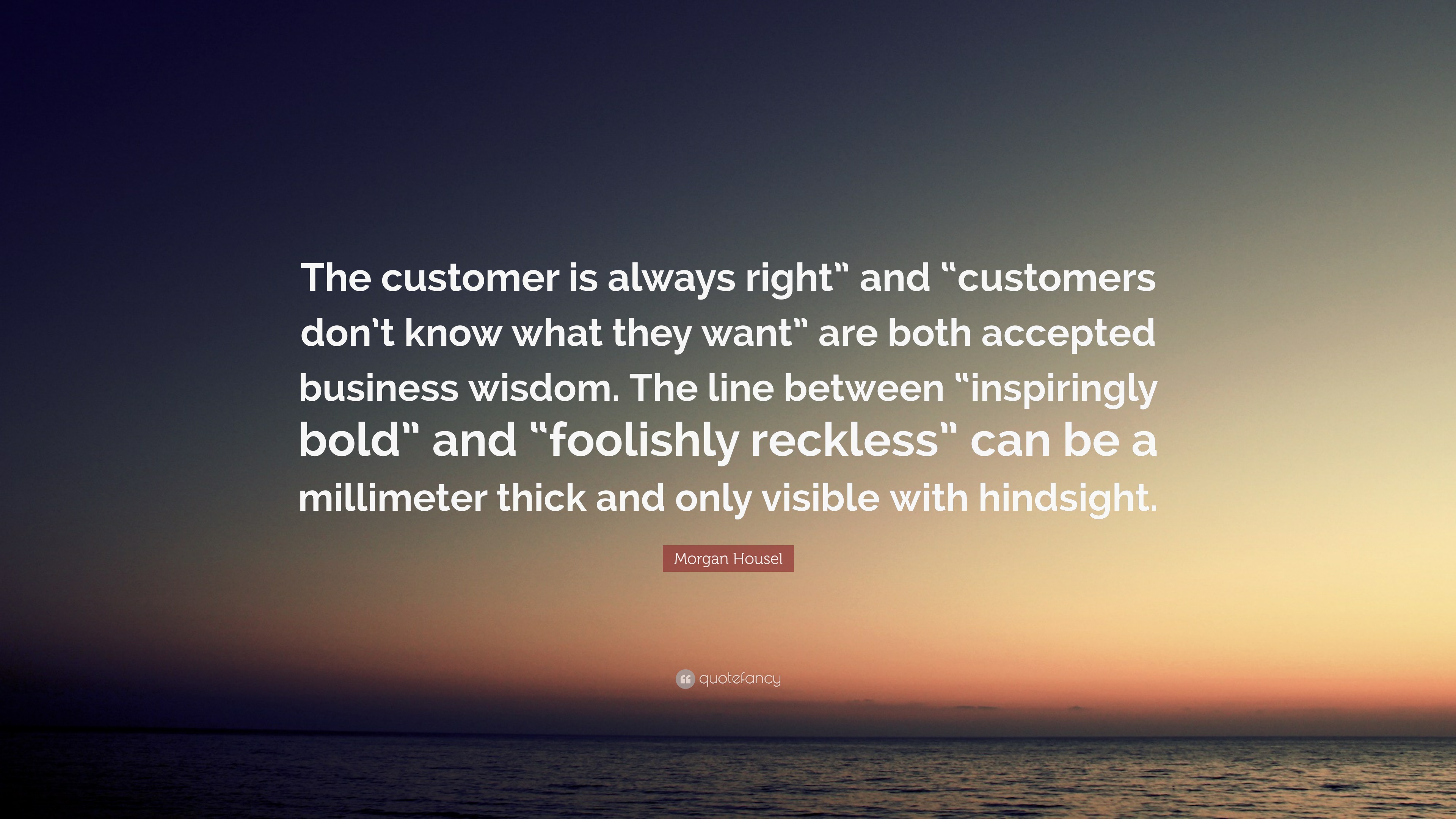The Customer Is Always Right In Matters Of Taste Origin

Imagine strolling through a bustling marketplace, the air thick with the aroma of exotic spices and freshly baked bread. A kaleidoscope of colors assaults your senses as vendors proudly display their wares, each a testament to unique traditions and skills. Amidst the cheerful haggling and vibrant displays, a fundamental principle quietly reigns: the customer's preference, their individual taste, is paramount.
This seemingly simple idea, that "the customer is always right in matters of taste," isn't just a catchy phrase. It's a foundational tenet that has shaped industries, fueled innovation, and democratized consumer choices across the globe. This article explores the origin and evolution of this principle, examining its impact on businesses and the ongoing debate surrounding its validity in the modern world.
The Birth of a Consumer-Centric Philosophy
While the exact origin is debated, the concept of prioritizing customer taste can be traced back to the early 20th century. The phrase itself is often attributed to retail pioneers like Harry Gordon Selfridge, the founder of the London department store Selfridges, and Marshall Field, the founder of the Chicago-based department store bearing his name.
These visionaries understood that in a burgeoning consumer culture, empowering customers and respecting their preferences was crucial for success. They shifted the focus from simply selling products to creating an experience that catered to individual desires.
Selfridge, in particular, was known for his innovative marketing strategies, designed to attract and delight shoppers. He believed that by creating an inviting atmosphere and offering a wide range of choices, customers would be more likely to return and become loyal patrons.
Beyond Retail: A Universal Principle
The "customer is always right" ethos quickly transcended the realm of retail and became a guiding principle in various industries. From hospitality to manufacturing, businesses began to recognize the importance of understanding and responding to customer needs and preferences.
In the food industry, for example, companies invested heavily in market research to identify emerging taste trends and develop products that catered to specific demographics. This led to a proliferation of flavors, ingredients, and culinary styles, reflecting the diverse palates of consumers worldwide.
Similarly, in the fashion industry, designers started to pay closer attention to customer feedback, incorporating suggestions and preferences into their collections. This resulted in a more democratic and inclusive approach to fashion, where individual style and expression were celebrated.
The Democratization of Taste
The rise of the internet and social media has further amplified the importance of customer taste. Consumers now have unprecedented access to information and a powerful voice to share their opinions and experiences with a global audience.
Online reviews, social media comments, and blog posts can make or break a business, highlighting the crucial role that customer feedback plays in shaping brand reputation. This has forced companies to become more transparent, responsive, and customer-centric in their operations.
The internet has also democratized access to niche markets and specialized products. Consumers can now easily find and purchase items that cater to their unique tastes and preferences, regardless of location or availability.
The Limits of the Maxim: A Critical Perspective
While the "customer is always right in matters of taste" principle has undoubtedly benefited consumers, it's not without its limitations. Critics argue that blindly adhering to this maxim can lead to a race to the bottom, where quality and craftsmanship are sacrificed in favor of mass appeal and lower prices.
Moreover, some argue that customers may not always know what they want or need. In certain situations, it may be necessary for businesses to guide and educate customers, offering expert advice and recommendations based on their own knowledge and experience.
Danny Meyer, the renowned restaurateur, advocates for a more nuanced approach, suggesting that "the customer is always mostly right." He emphasizes the importance of empowering employees and trusting their judgment, while still prioritizing customer satisfaction.
Finding the Balance: A Modern Approach
In today's dynamic marketplace, businesses need to strike a delicate balance between respecting customer taste and maintaining their own brand integrity. This requires a deep understanding of customer needs, coupled with a commitment to quality, innovation, and ethical practices.
Companies that succeed in this environment are those that listen attentively to customer feedback, but also have the courage to stand by their values and offer products and services that reflect their unique vision. This often involves educating customers about the benefits of higher quality, sustainable practices, or innovative technologies.
Ultimately, the "customer is always right in matters of taste" principle should be viewed as a starting point, rather than an absolute rule. It's a reminder that businesses exist to serve their customers, but also have a responsibility to contribute to a more sustainable, equitable, and enriching society.
The Enduring Legacy
The emphasis on customer taste has profoundly shaped the modern world, driving innovation, fostering competition, and empowering consumers. From the bustling marketplaces of centuries past to the digital storefronts of today, the principle of respecting individual preferences remains a powerful force.
As businesses navigate the complexities of the 21st century, it's more important than ever to remember the origins of this philosophy and to adapt it to the evolving needs and expectations of customers. By embracing a customer-centric approach, businesses can build lasting relationships, foster brand loyalty, and create a more vibrant and inclusive marketplace for all.
So, the next time you find yourself indulging in a favorite treat or selecting a product that perfectly suits your needs, take a moment to appreciate the power of individual taste and the enduring legacy of the "customer is always right" principle.













![The Customer Is Always Right In Matters Of Taste Origin DURATION QUOTES [PAGE - 10] | A-Z Quotes](https://www.azquotes.com/picture-quotes/quote-the-customer-is-always-right-may-have-become-a-standard-motto-in-the-world-of-business-max-atkinson-68-8-0811.jpg)




